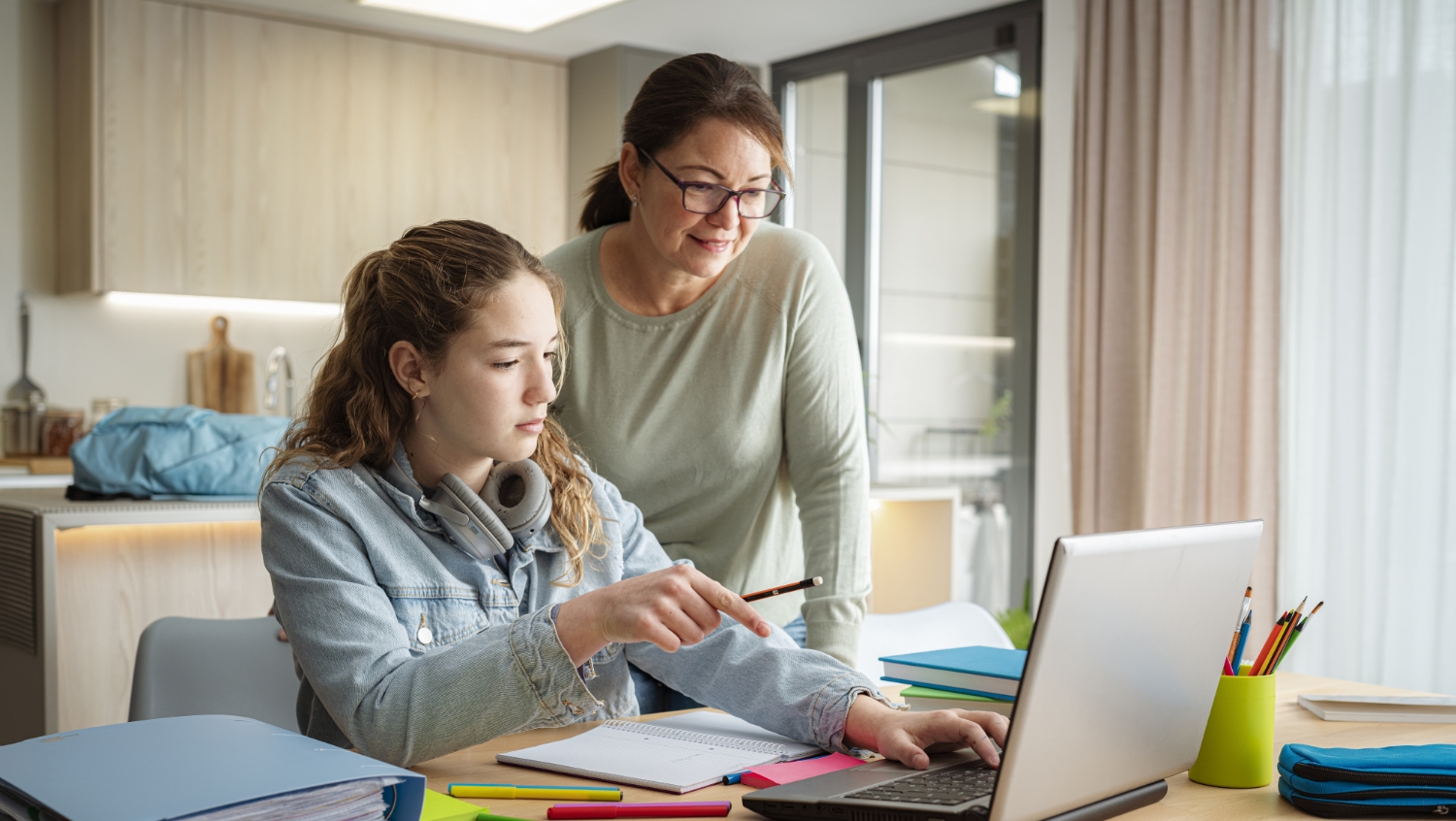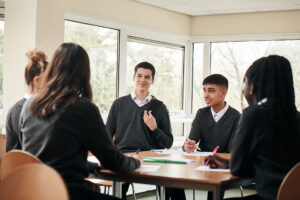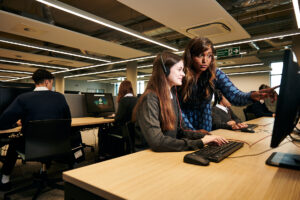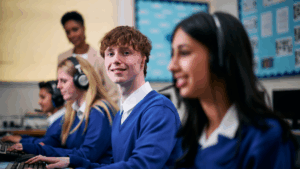Back to school – Supporting students after the holiday season
As an experienced headteacher, I’ve had the privilege of working with diverse students, each with unique strengths and challenges.
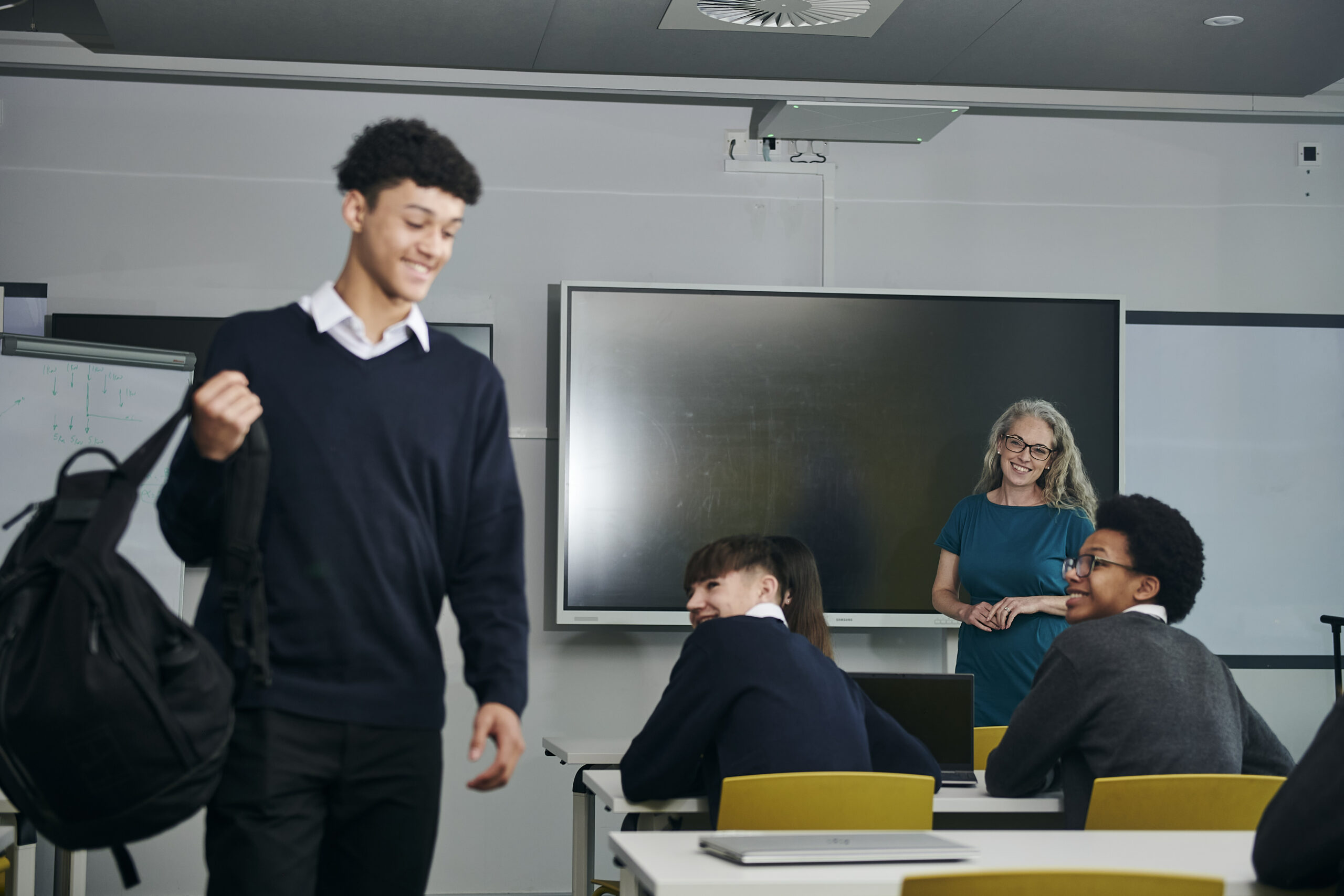
Among these students are those with additional needs, for whom returning to school after the Christmas and New Year holidays can be particularly challenging. While many of us look forward to the new year with a sense of renewal, this period represents a time of disruption and anxiety for some students. But why is this the case, and how can we support these students as they transition back into the classroom?
The overstimulation of the holiday season
The festive season is often an overstimulating experience; returning to school after the holidays can feel just as overwhelming for many students. During the break, many homes are filled with family and friends, decorations like Christmas trees and fairy lights create a different atmosphere, and the noise and bustle of the season can make some students feel unsettled. For students with additional needs, this sensory overload can leave them feeling anxious. The school’s familiar, often predictable environment is replaced by a bustling, unpredictable one, which can be challenging to adjust to after a period of sensory stimulation.
The anxiety of unstructured time
The two-week break from school marks a departure from the structured routines many students rely on. Without the predictability of a school day, students can feel anxious and struggle to readjust to the routine. Changes in when and what they eat, sleep, and work can leave them feeling disoriented. How can we help them feel more settled as they return to school in January and build a sense of stability and predictability after the disruption of the holidays?
The absence of familiar faces
Students spend hours each day with their teachers and peers during term time. These familiar faces provide a sense of safety and understanding. The absence of these relationships during the break can leave students feeling isolated. How can we bridge this gap as they return to school and ensure they still feel connected to their school community?
A break in routine
Routines are crucial because they offer predictability. A school day is often presented visually, usually with a timetable. This visual representation removes uncertainty for the student and helps their nervous system feel regulated, as they know what to expect next. Lessons with familiar peers and teachers contribute to this sense of security, allowing students to feel safe and understood in an environment they recognise.
Holidays can be triggering because they disrupt familiar structures and predictability. Without these, students—especially students with SEN—may feel a loss of stability and suffer heightened feelings of anxiety, dysregulation, and uncertainty, as their nervous system no longer has clear signals about what to expect. The absence of routine can also lead to sensory overload or feelings of isolation, making it harder for some students to feel grounded and secure.
Strategies to support students in staying motivated after the holiday season
Routines and predictability can prevent dysregulation, helping students with various needs feel in control of their time. This sense of safety allows them to stay regulated, and we know that when students are physiologically regulated, they learn better and are less distracted by extraneous factors. Here are some strategies you can consider to support your students in returning to the school environment after the holiday break:
1. Re-establish routine gradually
A clear routine is the foundation of effective teaching and learning. The abrupt return to a strict routine can overwhelm some students after the holiday season. Work closely with parents so they can gradually reintroduce familiar routines like mealtimes, bedtimes, and schoolwork schedules to help ease them back into a rhythm. This will allow students to adjust to a stricter schedule without feeling overwhelmed.
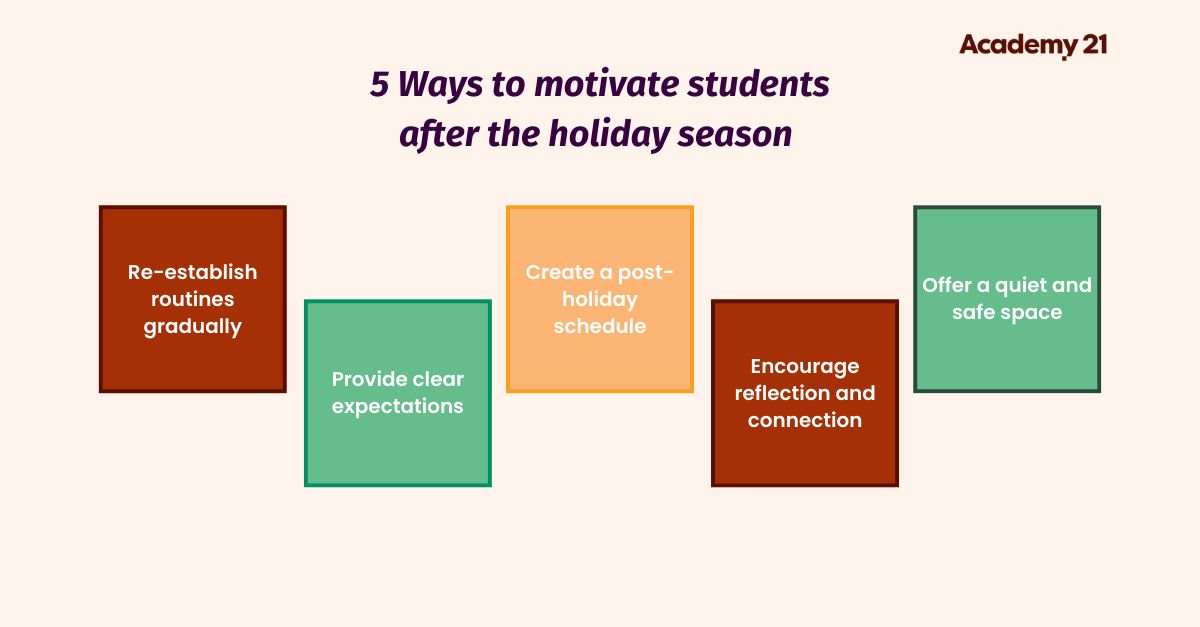
2. Provide clear expectations
Open communication is key to making your students feel safe and supported. Communicate what students can expect during the first few days of school after the break. This information sharing can include any changes that may have occurred during the holiday period, their schedule, or the key activities that will take place in January that students can look forward to. Clear expectations reduce uncertainty and can help alleviate anxiety about returning to school.
3. Create a post-holiday schedule
Beyond communication, consider taking the next step by creating a visual schedule for the first week back. This schedule can outline essential activities such as lessons, breaks, special school events and activities like mock exam preparations, offering students an easy-to-follow guide for what lies ahead. A visual schedule provides a structure for those who find transitions challenging, helping them feel more in control of their time.
4. Encourage reflection and connection
Allow students to share their holiday experiences and reflect on their time away from school. This can help them reconnect with the school community and transition smoothly into learning. Acknowledge the excitement and energy they may have from the holidays and use this as an opportunity to channel that enthusiasm into classroom activities.
5. Offer a quiet, safe space
Recognising that some students may feel overstimulated or anxious when returning to school after the holidays is essential. Ensure that students have access to a quiet, safe space where they can retreat if they need to decompress. This space is especially beneficial for students who are neurodivergent and may feel overwhelmed by the sensory input of a busy school environment.
When to get external support
There are times when students may need more tailored support than your school environment can provide, especially after the holiday break when transitions can be particularly challenging. Suppose a student finds it difficult to engage in classes, experiences persistent anxiety, or faces other challenging circumstances (in or outside school). In that case, it may be worth considering alternative provisions for more personalised support.
As the leading online alternative provision specialist, Academy21 offers a range of short-term and long-term solutions for students who may need additional support. In addition to our high-quality, DfE-accredited education for Key Stage 3-4, we offer a range of academic and pastoral courses and have a dedicated SEN team that ensures we can cater to every student’s needs.
Fostering a smoother return to school in 2025
The festive season can be a joyous time for many, but for students with additional needs, it can also be a period of disruption and anxiety. By understanding the importance of routine and predictability, we can better support these students as they return to education in the new term.
Our responsibility is to ensure that all students feel safe, understood, and connected when they return to school.
Written by
Amy Husband
Posted on
08/01/2025
Updated on
08/01/2025
Topic
Student successPost type
Blog